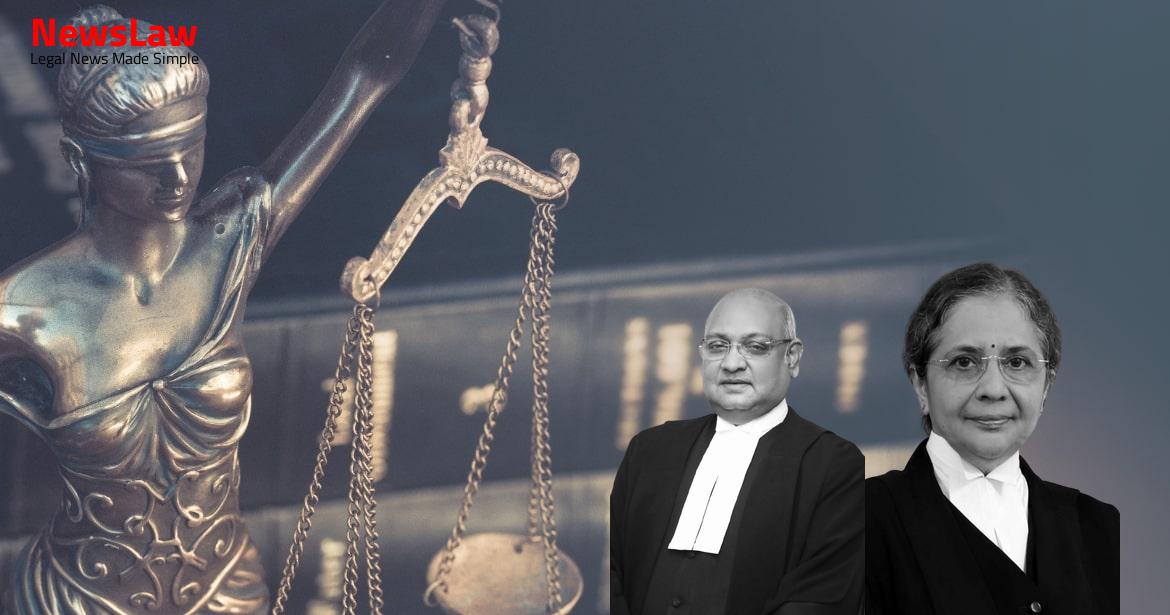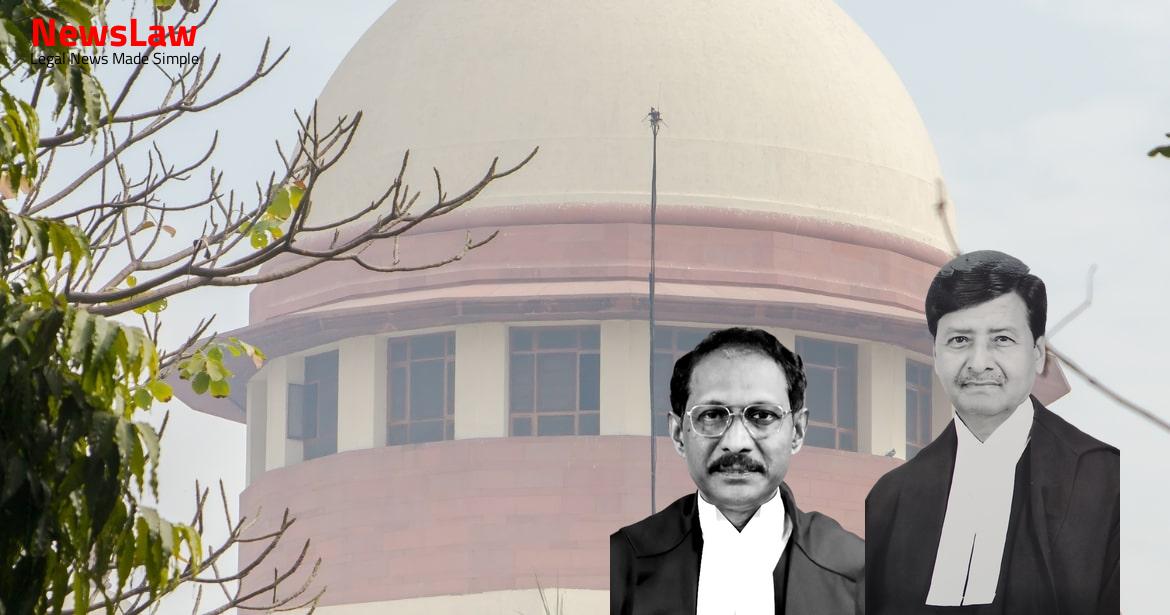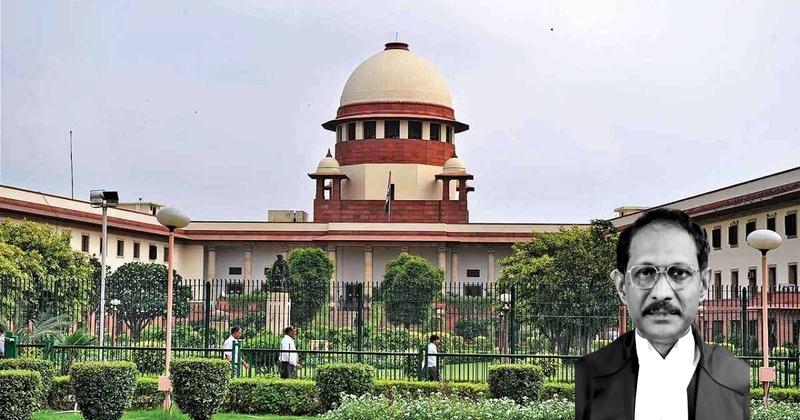In a recent legal case, the court delved into the intricacies of extra-judicial confessions and witness testimonies. The analysis focused on the challenges and nuances surrounding these aspects of evidence in court proceedings. Let’s explore the critical insights provided by the court’s legal scrutiny in this complex case.
Facts
- PW-1 and family searched for the child in and around the locality.
- PW-12 enquired about any ornaments on the child at the time of filing the complaint.
- The child, Master Hrithik, aged 2.5 years, lost his life on 03.11.2002 in Hubli, Karnataka.
- On 15.11.2002, PW-1 enquired about the child from the appellant who confessed to murdering and throwing the child’s body in a well.
- On 14.11.2002, the appellant appeared in a drunken state talking about the missing incident.
- The complaint was registered as Crime No. 215/2002.
- Considerable divergence in events and timelines between parties and Court decisions.
- Appellant confessed to the crime at the police station and the spot panchnama was prepared.
- Accused no. 2 and 3 were arrested, leading to the recovery of jewelry articles from the deceased child’s body.
- Extra judicial confession and differences in statements of PW-1 noted.
- Dead body found in the well, and FIR registered based on the complaint by PW-1.
- Key details and discrepancies in PW-1’s conduct and statements discussed.
- Accused no. 2 and 3 were acquitted by both Trial Court and High Court due to lack of trustworthy evidence.
- The theory of last seen and recovery of ornaments from PW-17 were rejected in relation to accused no. 2 and 3.
- The Trial Court acquitted the appellant after a full-fledged trial, based on lack of credible evidence.
- High Court convicted the appellant based on extra-judicial confession, information leading to discovery of the dead body, and minor discrepancies in PW-1’s testimony.
- Trial Court acquitted all accused due to absence of eyewitnesses and reliance on circumstantial evidence like extra-judicial confession and recovery of the dead body.
- High Court partially allowed the appeal, convicting the appellant for various charges despite rejection of similar evidence by the Trial Court.
Issue
- Issue 1: Admissibility, credibility, and sufficiency of appellant/accused’s extra judicial confession
- Issue 2: Reliability and trustworthiness of testimony by PW-1
Arguments
- The appellant argues that the High Court overlooked the discrepancy in the description of clothes found on the dead body and that mentioned by PW-1 in his complaint.
- The appellant contends that the High Court did not properly analyze the extra-judicial confession in light of the suspicion raised by the Trial Court.
- The appellant points out that the High Court failed to acknowledge the absence of PW-1’s mother and wife from the list of prosecution witnesses.
- The appellant asserts that the Trial Court thoroughly examined all evidence and the High Court exceeded its authority by re-evaluating the evidence and reaching a different conclusion.
- The appellant raises concern that the High Court did not discuss the Trial Court’s finding on the sequence of the appellant’s arrest in the impugned order.
- Lastly, the appellant argues that if two interpretations were possible, the High Court should have favored the view in favor of the accused to give the benefit of doubt.
- The appellant insists that the High Court did not rigorously test the extra-judicial confession and placed excessive reliance on it.
- The voluntary extra judicial confession of PW-1 is considered crucial evidence.
- The confession led to the discovery of the deceased’s body, adding credibility to it.
- Citing the cases of Sansar Chand v. State of Rajasthan and Piara Singh v. State of Punjab to support the importance of the confession.
- Minor discrepancies should not overshadow the entirety of a witness’s testimony, as per Mallikarjun v. State of Karnataka and Hari Singh & Anr. v. State of Uttar Pradesh.
Analysis
- The omission of the incident of 14.11.2002 in the complaint given by PW-1 is crucial as it was the precursor to the following confrontation and complaint.
- The testimonies of PW-1 lack reliability due to inconsistencies, contradictions, and unreliable witness accounts.
- The existence of the extra judicial confession and the reliability of PW-1’s testimony are questionable, leading to doubts in the prosecution’s case.
- The recovery of the decomposing body after 12 days from a well, with body parts bitten by aquatic animals, raises doubts on the identity and cause of death.
- The High Court’s reversal without addressing the Trial Court’s doubts and inconsistencies further adds skepticism to the case.
- The discrepancies in witness testimonies, lack of explanation for key events, and multiple versions of events lead to significant doubts in the prosecution’s narrative.
- The confession made by the appellant before PW-1, his mother, and wife raises questions about its authenticity and circumstances.
- The chain of circumstantial evidence is inconsistent and unexplained, leaving room for doubt.
- The recovery of the dead body and the identity of the deceased are not beyond question, casting shadows on the reliability of evidence.
- The prosecution’s case, relying heavily on the extra judicial confession, lacks the necessary certainty and trustworthiness required for such confessions.
- Extra judicial confession is considered a weak type of evidence and must be accepted with great care and caution.
- It should be corroborated by other evidence on record to inspire confidence and be treated as a strong piece of evidence for determining guilt.
- An extra judicial confession made by a co-accused loses significance if there is no substantive evidence against the accused, and conviction cannot be solely based on it.
- The principles concerning circumstantial evidence, known as the ‘Panchsheel’ principles, are crucial when the case is based on such evidence.
- In cases of appeal against acquittal, the reasons for acquittal by the trial court must be addressed if the appellate court considers overturning the acquittal.
- For proving a case based on circumstantial evidence, it is essential to establish a complete chain of circumstances.
- Circumstantial evidence is often used when there is a lack of direct evidence.
- The evidence presented by the prosecution only raises suspicion, not enough for conviction
- The prosecution failed to establish a coherent chain of circumstances
- The case does not warrant a light-hearted acquittal
- The High Court made an error in reversing the decision of acquittal
Decision
- The appeal has been disposed of.
- The Trial Court’s order has been found to be without any issues and has been restored.
- The impugned order and judgment have been set aside.
- As a result, the appellant is acquitted of all charges.
- Any interim applications have been resolved.
- No costs have been ordered.
- The appellant is to be released immediately if in custody.
Case Title: KALINGA @ KUSHAL Vs. STATE OF KARNATAKA BY POLICE INSP.HUBLI (2024 INSC 124)
Case Number: Crl.A. No.-000622-000622 / 2013



